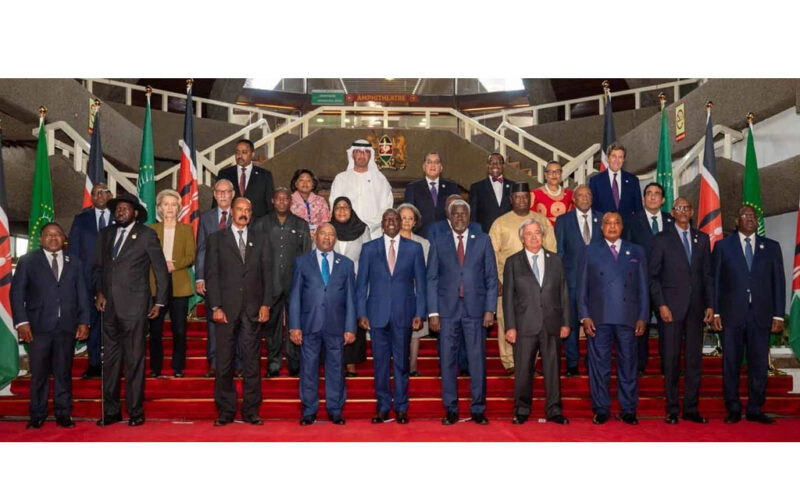Niël Terblanché
African Heads of State and Government convened for the inaugural Africa Climate Summit (ACS) in Nairobi, Kenya, from September 4th to 6th, 2023.
The summit brought together a diverse array of stakeholders, including global leaders, intergovernmental organizations, Regional Economic Communities, United Nations Agencies, the private sector, civil society organizations, indigenous peoples, local communities, farmer organizations, children, youth, women, and academia.
The primary focus of the summit was to address the escalating climate crisis that is impacting the African continent disproportionately. The leaders issued a declaration known as “The African Leaders Nairobi Declaration on Climate Change and Call to Action,” which outlines a comprehensive approach to combat climate change while fostering sustainable development across Africa.
The declaration begins by recognizing previous assembly decisions that requested the African Union Commission to organize the ACS and commends the Committee of African Heads of State and Government on Climate Change (CAHOSCC) for providing unified political leadership on an African vision for addressing climate change and development.
Acknowledging the findings of the Intergovernmental Panel on Climate Change (IPCC), which indicate that global emissions must be reduced by 45% within this decade to limit global warming to the 1.5°C target set in the Paris Agreement, the leaders emphasized the urgency of the climate crisis. They also underscored that Africa is warming faster than the rest of the world, leading to adverse impacts on economies and societies.
Moreover, the declaration emphasizes that Africa, despite not being historically responsible for global warming, bears the brunt of its effects. It calls for a commitment to equity, common but differentiated responsibilities, and respective capabilities, as outlined in the United Nations Framework Convention on Climate Change (UNFCCC) and the Paris Agreement.
The leaders recognized Africa’s potential to play a significant role in addressing climate change, thanks to its abundant renewable energy resources, vast natural assets, and a burgeoning young workforce. They also highlighted Africa’s role as a carbon sink through its forests, peatlands, savannas, mangroves, and marine reserves.
To address these critical issues, the African leaders made a series of calls to action to accelerate efforts to reduce emissions in line with the Paris Agreement, To Honour the commitment to provide US$100 billion in annual climate finance, to phase down coal use and to abolish fossil fuel subsidies, to operationalize the Loss and Damage facility agreed to at COP27, to shift the focus of industrial development to renewable energy and green production, to strengthen actions to halt biodiversity loss, deforestation, and land degradation, to increase Africa’s renewable energy generation capacity to at least 300 GW by 2030, to leverage innovative financing mechanisms to support climate-positive investments, and to reform the multilateral financial system and global financial architecture.
The leaders also called for collective global action, emphasizing that decarbonizing the global economy presents an opportunity to promote equality and shared prosperity. They urged development partners to coordinate their resources for sustainable development in Africa and accelerate initiatives to reform the multilateral financial system.
The declaration signals Africa’s determination to take the lead in addressing the climate crisis and emphasizes the importance of global cooperation in achieving a sustainable and climate-resilient future for the continent and the world.
The African Union Commission has been tasked with developing an implementation framework and roadmap for the declaration, with climate change set to be a theme for the AU in the years 2025 or 2026.




